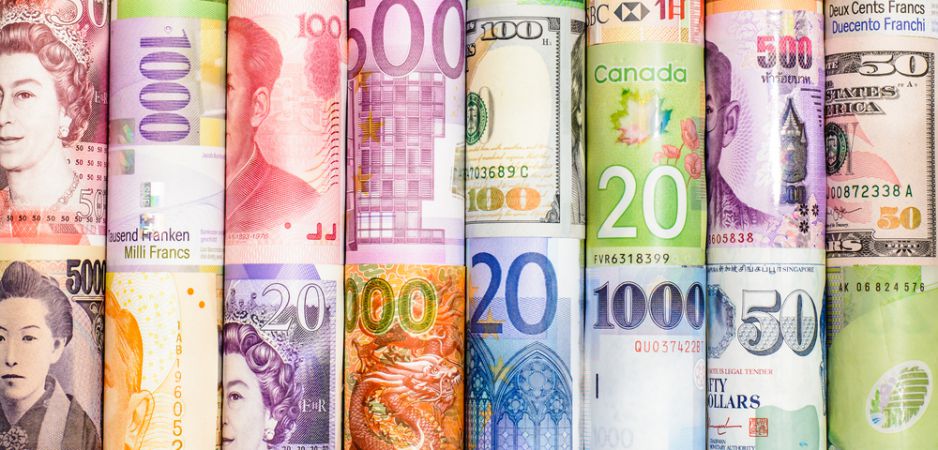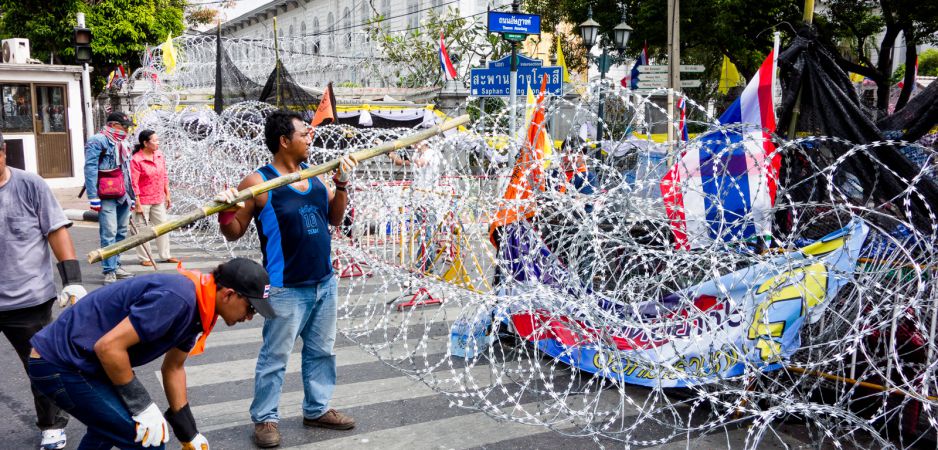Obama deserves kudos for the nuclear deal with Iran and for his plans to reform the US criminal justice system.
After protracted negotiations, the big powers have concluded a nuclear deal with Iran. The United States, Britain, France, China, Russia and Germany—together known as the P5+1—announced that they have reached an agreement “that will verifiably prevent Iran from acquiring a nuclear weapon and ensure that Iran’s nuclear program will be exclusively peaceful going forward.”
The White House claims the nuclear deal “will cut off all of Iran’s potential pathways to a bomb.” While US President Barack Obama spells out much detail about how the deal will work, he is understandably silent about why he pushed so hard for this agreement.
Once upon a time, Iran was a vassal state run by a pliant Shah Mohammed Reza Pahlavi, who was installed in Tehran in 1953 by none other than the Central Intelligence Agency (CIA). The first democratically elected government of Iran was deposed summarily. Its demand for a fairer share of oil revenues from the Anglo-Iranian Oil Company was contemptuously ignored.
Pahlavi’s oppression, brutality, corruption, incompetence and extravagance meant that revolution was only a matter of time. When it eventually came in 1979, Pahlavi, rightly derided as “the suitcase monarch,” fled the country. Ayatollah Ruhollah Khomeini, who claimed to be a descendant of Prophet Muhammad, captured power and Uncle Sam became the Great Satan.
Much water has flowed under the bridge since 1979. Power has softened the Shiite mullahs who rule Iran. Over 50% of Iran’s nearly 80 million people are under 30. They want jobs and better lives. The mullahs have been under immense pressure to make a deal with the P5+1 to boost their economy.
Under Obama, the US has come a long way since the Cold War days. Rapprochement with Cuba is already a fait accompli. Reconciliation with Iran is the logical next step for a president seeking to leave a legacy.
Obama has accepted what has long been an open secret in intelligence circles. Meir Dagan, Israel’s former spy boss from 2002-11, has declared that a military strike on Iran’s nuclear installations is “a stupid idea,” and this Mossad man contends that Israel’s hawkish leaders lack judgment. Michael Hayden, the boss of the CIA under US President George W. Bush from 2006-09, agrees with Dagan and states that his organization concluded that attacking Iran was “a bad idea.”
Since war is not an option, it makes little sense to maintain hostility through continued sanctions. The Middle East is going through its version of the Thirty Years’ War. The Islamic State (IS) has unleashed fanatical violence and intolerance that has swept through the region. The US has worked tacitly with Iran-backed Shiite militias to push back IS in Iraq. The so-called democracy that Bush and his neoconservative cronies imposed on Iraq has led to a Shiite-dominated government in Baghdad that is closer to Tehran than to Washington. To deal with Iraq, the US now has to deal with Iran.
Furthermore, the US is increasingly worried about the rise of China. Obama’s Asia Pivot has failed in no small part due to the fact that the US is still far too embroiled in the Middle East. Its military is weary and its veterans traumatized. There are also major problems at home. Budget deficits, increasing inequality, failing schools, crumbling infrastructure and rotting jails are real limits to American power.
Obama has demonstrated great courage in reaching out to Iran. His enemies, such as fanatical Republican Senator Tom Cotton and Israeli Prime Minister Binyamin Netanyahu, are already jumping up and down in woolen underwear to denounce the deal. Yet there is simply no alternative. Russia and China have already started doing business with Iran. The Germans and the British do not want to be left behind. Non-P5+1 powers such as India are itching to increase their trade with Iran as well. The era of American exceptionalism is over and it is to Obama’s great credit that, by putting his name to the nuclear deal, he has recognized this fact.
This week, Obama set out what the BBC called “sweeping reforms to the US criminal justice system.” He wants an end to mass incarceration that makes the entire country worse off. To drive home his point, Obama became the first sitting president to visit a federal prison. In a country where one in three African American males ends up in jail, this presidential visit is of historic significance. Obama has thrown the gauntlet to the failed puritanical policies of Ronald Reagan and Bill Clinton by arguing for more humanity, proportionality and common sense when dealing with crime.
Even as Obama has demonstrated courage, European leaders have behaved with pusillanimity, dogmatism and denial in dealing with the Greek crisis. They will give Greece another €86 billion ($93 billion) bailout on the fictional assumption that the Greek economy will miraculously grow to pay back its debts. Yet they are imposing greater financial austerity on Greece at a time when its economy is contracting and forcing fire sales of the country’s assets when confidence has tanked. Yanis Varoufakis, the former Greek finance minister, is right to proclaim that the deal will fail. Even the International Monetary Fund (IMF) has declared the deal is not viable and there is no alternative to substantial debt relief. The era of debt has come to an end, but the Europeans led by intransigent Germans are refusing to see the writing on the wall.
In China, authorities have unleashed heavy artillery to stem the collapse of confidence in the stock market. They put $483 billion into the market to avoid the souring of loans backed by equities. The Chinese are caught in a bind. They know that shares are overvalued in a slowing Chinese economy and this asset price bubble has to burst. However, they are well-aware that panic will wreck their financial system and derail the economy. So, they are desperately trying to buoy an overvalued market for now in the hope that the bubble will deflate gently, with a whimper instead of a bang. To use a Chinese proverb, the Middle Kingdom faces interesting times indeed.
*[You can receive “The World This Week” directly in your inbox by subscribing to our mailing list. Simply visit Fair Observer and enter your email address in the space provided. Meanwhile, please find below five of our finest articles for the week.]
[seperator style=”style1″]Is Obama Channeling Nixon?[/seperator]
The nuclear deal with Iran, like Nixon’s opening to China in 1972, has the potential to be a geopolitical game-changer—if it can get through Congress first.
One of the greatest moments of US diplomacy in the 20th century was President Richard Nixon’s opening to China. It was a surprise, a breathtaking opportunity and a true game-changer.
It was also one of the strangest political matches of all time. A president who had established his political bona fides as an anti-communist crusader shocked everyone by establishing relations with a communist state led by one of the world’s most ruthless politicians (in a century densely populated by such tyrants). China in the early 1970s was still in the thrall of the Cultural Revolution, and the increasingly senescent Mao Zedong was a most unlikely partner for Nixon’s diplomatic effort.
But Nixon’s secretary of state, Henry Kissinger, displayed an often-appalling pragmatism. He didn’t care if Mao was chin deep in the blood of his own victims… Read more
[seperator style=”style1″]Greek Crisis is Not Only a Tragedy: It is a Lie[/seperator]
The leaders of Syriza are revolutionaries, but their revolution is the perverse kind, says John Pilger.
An historic betrayal has consumed Greece. Having set aside the mandate of the Greek electorate, the Syriza government has willfully ignored the country’s landslide “no” vote and secretly agreed a raft of repressive, impoverishing measures in return for a “bailout” that means sinister foreign control and a warning to the world.
Prime Minister Alexis Tsipras has pushed through parliament a proposal to cut at least €13 billion from the public purse—€4 billion more than the “austerity” figure rejected overwhelmingly by the majority of the Greek population in a referendum on July 5.
These reportedly include a 50% increase in the cost of health care for pensioners, almost 40% of whom live in poverty; deep cuts in public sector wages; the complete privatization of public facilities such as airports and ports; and a rise in value added tax to 23%, now applied to the Greek islands where people… Read more
[seperator style=”style1″]Foreign Investment Potential in India[/seperator]
In this edition of The Interview, Fair Observer talks to Russell Stamets, a Delhi-based lawyer, author and business advisor.
Many foreign and domestic investors were jubilant when Narendra Modi became the new Indian prime minister in 2014. The upbeat market sentiment in India was expressed with a 27% rise in foreign direct investment (FDI) to $30.9 billion in fiscal year (FY) 2015. Foreign Institutional Investors (FII) have also poured money into India in FY 2015, with $17.9 billion specifically designated for Indian equities.
While the trend is positive, there are issues ranging from weak corporate earnings to high levels of non-performing assets (NPA) in banks—which is enough to cause jitters. Moreover, the government has come under scrutiny for trying to impose the minimum alternative tax (MAT), which could be applied retrospectively to firms; this could result in a large cost for companies and become a critical deterrent for foreign investment. Nonetheless, the first year for the prime minister has resulted… Read more
[seperator style=”style1″]Thailand: The Land of Smiles and Dictators[/seperator]
What are Thailand’s prospects for democracy a year after the country’s 19th coup?
As most media outlets have their attention geared toward Iran, Greece and the European Union’s asylum seeker crisis, Thailand continues to struggle with the military government that installed itself by a coup d’état in 2014.
In April, former General and self-appointed Prime Minister Prayuth Chan-ocha lifted the country’s martial law—which was in effect since the ouster of Prime Minister Yingluck Shinawatra—and he unveiled a new draft constitution. This document, despite its attempt to massage the authoritarian reputation of the issuing junta, gives leeway to even heavier-handed politics thanks to Article 44, which puts a gag on freedom of opinion and political opposition.
Prayuth’s offhand comments about journalists facing execution, and a Human Rights Watch report stating that “one year since the military coup, Thailand is a political dictatorship with all power in the hands of one man,” show that this is not the time to overlook Thailand’s situation. Sadly, the country’s… Read more
[seperator style=”style1″]Fan Opposition to Qatar Goes Viral[/seperator]
An online petition has been launched, calling on FC Barcelona to ditch Qatar Airways as its shirt sponsor.
Qatar is discovering the reputational risk involved in hosting mega sporting events. Qatar Airways’ sponsorship of FC Barcelona is producing exactly the kind of publicity that is a corporate sponsor’s worst nightmare, while a Swiss investigation of the Qatari World Cup 2022 bid threatens to expose questionable financial dealings that will fuel demands for withdrawing the tournament from the Gulf state.
An online petition, calling on FC Barcelona to ditch Qatar Airways as its shirt sponsor unless it “treats its workers fairly,” has collected more than 50,000 signatures in only a few days.
The petition was launched in the wake of an International Labour Organization (ILO) report based on a year-long inquiry, which accused the airline of gender discrimination—with the backing of the government—by retaining the contractual right to fire cabin crew who become pregnant and by forbidding female employees to be dropped… Read more
The views expressed in this article are the author’s own and do not necessarily reflect Fair Observer’s editorial policy.
Photo Credit: US Department of State / Flickr
 We bring you perspectives from around the world. Help us to inform and educate. Your donation is tax-deductible. Join over 400 people to become a donor or you could choose to be a sponsor.
We bring you perspectives from around the world. Help us to inform and educate. Your donation is tax-deductible. Join over 400 people to become a donor or you could choose to be a sponsor.
Support Fair Observer
We rely on your support for our independence, diversity and quality.
For more than 10 years, Fair Observer has been free, fair and independent. No billionaire owns us, no advertisers control us. We are a reader-supported nonprofit. Unlike many other publications, we keep our content free for readers regardless of where they live or whether they can afford to pay. We have no paywalls and no ads.
In the post-truth era of fake news, echo chambers and filter bubbles, we publish a plurality of perspectives from around the world. Anyone can publish with us, but everyone goes through a rigorous editorial process. So, you get fact-checked, well-reasoned content instead of noise.
We publish 2,500+ voices from 90+ countries. We also conduct education and training programs
on subjects ranging from digital media and journalism to writing and critical thinking. This
doesn’t come cheap. Servers, editors, trainers and web developers cost
money.
Please consider supporting us on a regular basis as a recurring donor or a
sustaining member.
Will you support FO’s journalism?
We rely on your support for our independence, diversity and quality.












Comment